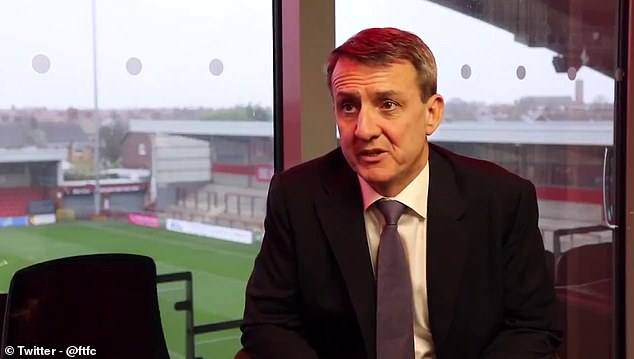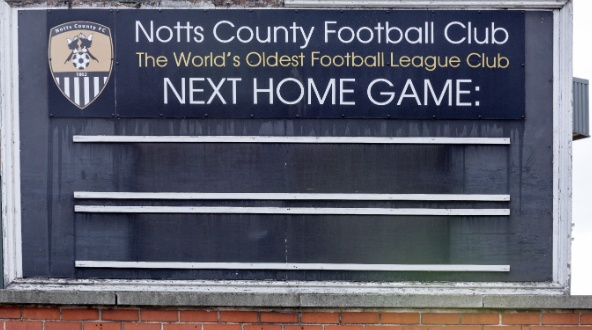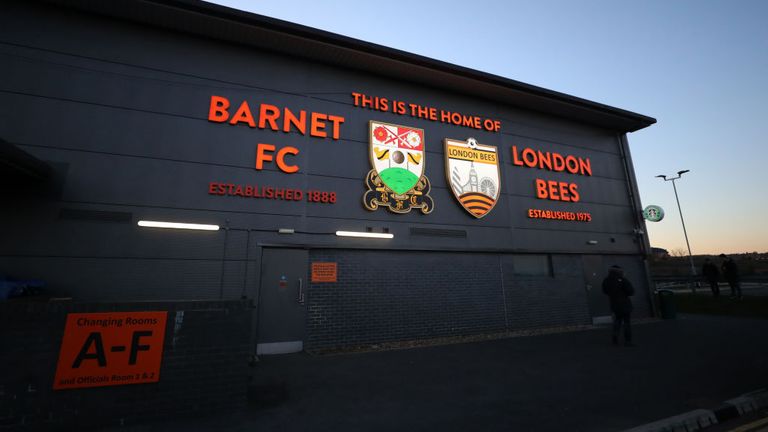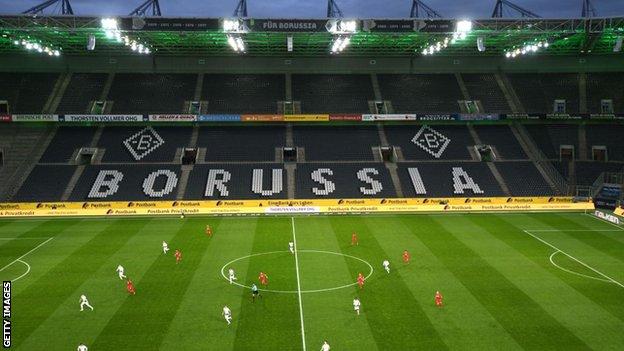While football’s largest leagues pull out all stops to weather the financial storm caused by the global pandemic, smaller soccer clubs have fewer levers to pull. As a result, the current coronavirus shutdown could prove to be an “extinction-level” event for lower-tier clubs across the globe — according to a panel of sports economists who spoke with OG News.

A recent study by KPMG estimated that the five major leagues in European football stand to lose upwards of €4 billion ($4.3b), with the English Premier League taking the biggest hit (€1.25/$1.36 billion), and €50 million ($54m) being sapped from League One and League Two clubs.
‘Time of Reckoning’
Paul Scally, chairman of League One’s Gillingham, called it “a time of reckoning” for League One and League Two teams facing unprecedented revenue losses. He called for Premier League clubs to help out their lesser brethren.
In March, the EFL offered £50 ($62m) million in short-term relief for cash-strapped clubs. In April, EPL owners voted unanimously to loan £125 million ($155m) to the EFL and the National League, while also making a £20 million ($25m) cash donation to the National Health Service.
It still, however, may not be enough.
“We run the real risk of losing many famous football clubs,” Fleetwood chairman Andy Pilley told ESPN. “Ultimately the crisis may threaten the very existence of our football clubs if sufficient action is not taken. My concern is that we might have double figures of clubs that go to the wall.”
Creative Underwriting
Premier League teams and other top clubs have taken steps to contain their massive salary costs. Southampton’s first team agreed to take payment deferrals through June. Tottenham cut non-player staff wages by 20% and put striker Harry Kane up for sale. Championship team Leeds United encouraged their players to defer pay so the club could pay its non-football staff.Â
In La Liga, Barcelona players agreed to a 70% pay cut, and the club announced on Friday its plan to launch a fictional television series based on the club’s youth academy, La Masia.
Clubs are looking to raise money any way they can. But realistically, that’s not going to happen until they have something to put on TV, and something for fans to bet on.
Lower Leagues Left Behind?
On Sunday, the Times of London reported that the EPL, in conjunction with the British government and other sports leagues, is targeting a return to the pitch on June 8 — without fans — and to finish the season by July 27.Â
Bundesliga, meanwhile, is pushing for a May 9 fan-less return, perhaps in part, according to an internal report last month, because a third of Germany’s top and second-division clubs face insolvency by June. That decision is, ultimately, waiting for government approval.
Regardless of when any team returns to the pitch, small clubs are unlikely to benefit from football’s media-only return.Â
For the 48 clubs in League One and League Two, most of their income depends on matchday ticket sales. As a result, the situation is particularly dire for many teams who had long been teetering on the brink of financial hardship long before a once-a-century pandemic shut them down.
*Â *Â *Â *
To help make sense of what’s at stake, OnlineGambling.com reached three renowned sports economists who shared their insights on football’s financial challenges in the COVID-19 era.Â
Though they didn’t agree on everything, they all saw a particular struggle for lower-league teams that are dependent on matchday income. We also got some insight as to how this is playing out across the pond in MLS.

OG’s Expert Panel
Dr. Richard Sheehan is a professor in the Department of Finance at Notre Dame. His research focuses on banking and the economics of sports.
Dr. Daniel Rascher is director of the University of San Francisco’s Sport Management program and runs SportsEconomics as a consultant for business partners of professional sports leagues. (Twitter: @daniel_rascher)
Dr. Rob Wilson has authored five books on sports management and finance and is based at Sheffield Hallam University in the UK. (Twitter: @DrRob_Wilson)
*Â *Â *Â *
Help us understand how the shutdown is impacting the economics of football …
Wilson: If the English football season, that is all four top-flight divisions, fails to be concluded, then lost revenue will be in the region of £1 billion. Much of this will come from a reduction in broadcast revenue for the Premier League. But remember that is the revenue that flows through the system in the form of solidarity and parachute payments, threatening the integrity of the entire system.
Sheehan: The top teams generally have not been making a tremendous amount of money. Even with the eye-popping amounts they receive in broadcast revenues, plus licensing and sponsorships, player salaries are so high that profits can be relatively low. The implication? Premier and Championship League teams will likely see a dramatic drop in both revenues and costs, but also have revenue and funding sources that will be relatively resilient.Â
Wilson: With the shutdown, clubs are failing to generate meaningful revenue, which they need to pay their bills. That’s why there is so much pressure mounting on players to take wage cuts and wage deferrals.
Rascher: This is going to be more difficult on MLS than the US’s lower leagues because they’re likely to keep trying to pay their players, which is a big part of their budgets. I think net incomes (turnover) will go from break-even (some teams make a little, some lose a little) to losses around negative 20%-40% net profit margin. Both revenues and expenses will shrink, but revenues more so.

What’s the situation for clubs in the lower leagues?
Sheehan:Â The story for lower-level clubs, unfortunately, is bleak. I have called the virus an extinction-level event for many small businesses. Many of the smaller clubs are effectively small businesses. Their primary revenue sources are gate revenue and Solidarity payments. Any club that relies heavily on gate revenue is in major difficulty.
Wilson: The situation couldn’t be much worse for many teams in the lower tiers of English football. Those in the Championship and League 1, in particular, will feel the pain more than most, with costs exceeding revenues in the majority of clubs. In League 2, [matchday sales] will be as high as 70% of their total revenue, with 20% coming from sponsorships and commercial endorsements and the remaining 10% from solidarity funding.
Sheehan: The key question for League 2 teams is likely how much debt they are carrying. Their ability to service debt in the short term is likely going to be close to zero. They are unlikely to have [a] billionaire owner that can simply write a check to cover debt servicing costs.
Rascher: In the USL (D2) and below, the shutdown will hurt, but the teams in these leagues are more likely to let players go, shrink staffs a bit, and try to weather the shutdown that way.Â
Are clubs that have been around for generations in danger of going out of business?
Sheehan: If the team is an integral part of the community life and community spirit, it will persevere albeit potentially with a new ownership structure. I expect any clubs with appreciable debt to have to declare bankruptcy within the next year. That does not mean that they will disappear. It does mean that they will have a new owner(s) once they come out of receivership, assuming the locality and fans have a continued interest in the franchise. There’s no one size fits all approach. Â
Wilson: There are some excellent owners in the lower leagues, putting financial sustainability ahead of short-term, playing success. Andy Holt at Accrington Stanley is one of the best examples. Refusing to threaten the financial integrity of the club, balancing the revenue profile to protect, where possible, against downturns in trade, and making sensible decisions to support the financial health of the club.
Depending on the nature of the individual club’s finances, we could see clubs struggling right away. Barnet FC, although opportunistically using the coronavirus as an excuse, have already made staff redundant because they have such poor cash flow. Many will follow suit the longer this goes on — and without players looking to furlough their labor or take wage deferrals.
Rascher: Perhaps some [in the US] will go out of business, but likely they’ll shrink and hang in there. For many of these clubs, their overhead costs (fixed costs that don’t necessarily decline during a shutdown) are not too high. They’ll keep key staff and shrink operations.
How is the football shutdown hitting broader communities?
Wilson: The bigger the stadium, the more important football clubs are to the local economies. For many communities, businesses rely on seasonal takings to see them through the off-season. Pubs, bars, and amenities around the stadiums will be the worst hit. Like the clubs they service, they will be unable to employ staff without any trade.Â
Sheehan: Not to diminish the impact on the local psyche of losing “our” team, but the economic impact would be relatively small. Compared with the impact of small businesses failing, it would be just one of many that would be lost, although it would likely be more widely mourned than most.Â
Wilson: Though don’t forget, with fans traveling to away matches, money leaks out of the economy on away fixtures. The issues here are that nothing is happening, no spending is taking place in the local economies at retail outlets beyond football-related products. No cinema trips, no shopping trips, no restaurant visits.

How are leagues going to mitigate financial damages?
Wilson: The EFL provided a hardship fund worth £50 million to support Championship, League 1 and League 2 clubs. That will go some way in supporting their members with short-term cashflow positions. But this is a warning shot to all clubs operating in the professional sports space. Too long have they acted on short-term budgets, failing to plan for the future, building up reserves to support themselves in times of need.

Wilson: Some have asked players to defer wages, others have cut them altogether. The picture across European football is mixed, but this is a difficult formula. While many players earn eye-watering salaries, they too have expenditures that they are committed too. It’s not what you earn, it’s what you have left that matters. Many will operate like their employers, on a hand-to-mouth ratio. There will be voluntary schemes to follow and I would expect the league administrators to try and structure a coherent response. We await that.Â

What lies ahead for football at different levels?
Rascher: Some clubs do well with merchandise sales. Perhaps they can keep that going a bit (or launch new kits and sell those). I’ve seen some clubs offer workout sessions with team trainers as a way for fans to engage. This is a little bit like the Peloton app.
Wilson:Â The coronavirus pandemic, while terrible in its own global reach, has polarized the financial issues facing football. They must learn from this situation, hope that the season continues at some point in the future, and build more progressive and financially sustainable business models.Â
Sheehan: I expect the sports leagues will be allowed to resume play before fans will be allowed in the stands. It will likely be relatively easy to test a limited number of players, coaches, and officials for virus antibodies than it would be to test fans. That means the Premier League may be in relatively good shape since the number one source of their revenue is broadcast rights.
Attending a game in person is unlikely to start, but the media revenue should soon return, keeping major leagues in general on a relatively strong footing. As the viral outbreak wears off, which likely is still far in the future, the demand for recreational activities is likely to be high after most of us have been cooped up for months.Â













